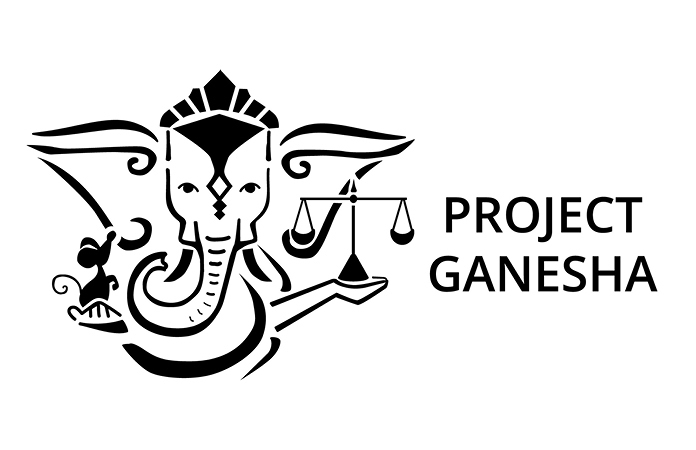
While women hold the majority of law school placements and now hold a slight majority of associates at U.S. law firms, less than 28% of firm partners are women, according to the National Association for Law Placement’s latest diversity report. Miko Brown and her organization, Project Ganesha, are working to change that in Colorado.
Brown graduated from the University of Pennsylvania Law School in 2001, and since then has spent 19 years in private practice, before moving to a Fortune 500 company in 2020 to lead its community trust legal team. She’s received a number of awards and honors in her career, including being named a Law Week Colorado 2019 Top Litigator and one of Law Week’s Top Women in 2014. She’s also developed a seven-figure book of business and built the Women in Leadership Lecture Series. Through it all, diversity, equity and inclusion has been Brown’s passion.
“To support women and diverse attorneys to reach their highest potential and goals, I call it my why,” said Brown. “Other than my family, [it’s] what gets me out of bed in the morning and what really keeps me doing this job and working as hard as I do.”
Changing the Doom and Gloom Narrative
Helping women and diverse attorneys reach that potential comes with knocking down a few hurdles, including taking on the narrative about what it takes to make partner at a law firm.
“What I really learned from talking with associates, and also just looking back at my own career, is that there is a story in place that you cannot be both professionally very successful as a partner in a law firm and be a happy, healthy associate and partner,” said Brown.
The narrative of suffering and sacrifice for at least seven years, and seeing very few partners that look like them, affect the risk-benefit calculation of women and diverse lawyers in choosing how they want to progress their careers, added Brown.
“So the risk-benefit equation is, ‘All right, I can suffer and sacrifice for seven years for a 10% chance of making it? Well those are terrible odds,’” said Brown.
The impression of life as a partner is also one that needs to become more realistic, according to Brown. She said partners often share stories with associates about the pain and personal sacrifice that come with being a partner at a law firm.
“But what we don’t share are all of the great things about being a partner,” said Brown. “The flexibility it offers, the control over your schedule that it offers, the stability financially that it offers, and so what happens is associates end up hearing a very one-sided narrative. They only hear the bad, and so of course they think, ‘Why would I want to be a partner?’”
Building a Roadmap for Success
Changing the narrative is only one aspect of Project Ganesha. Included in the organization’s efforts are playbooks, coaching and mentoring.
The playbooks outline steps associates, partners, in-house counsels and allies can take to help women and diverse associates grow and thrive in their practice of law. The associate playbook includes sections on maintaining mental and physical health, how to become a standout from a skill perspective, how to start building a book of business and relationships and how to stand out to partners, potential clients and existing clients.
“One of the tips for the business development section is spend the first five minutes of your day doing business development, starting from day one when you’re an associate,” said Brown. “Because I think that one of the myths that really plagues women and diverse associates, in particular, is this notion that you can’t start developing a book of business, and you shouldn’t even try, until you’re a partner.”
The coaching and mentoring is a key component of Project Ganesha. In talking with women and diverse associates, Brown found that many of them feared they wouldn’t be a successful partner because they didn’t have relationships and access to the people who could provide business for their firm.
By connecting these associates to mentors and coaches, Brown says it helps demystify the process of developing relationships with in-house counsels and helps inform them on how they can develop relationships with clients.
“They might not give you business now, but if you develop that relationship with them, and stick with it, and keep that relationship up for five, six, seven years, they’re going to trust you, they’re going to know you, and you will be a legitimate candidate for business at that point,” said Brown. “And then hopefully these in-house lawyers introduce you to other in-house lawyers, and that will help you develop your network.”
Since the launch of Project Ganesha in late 2023, Brown has been speaking with firms about the project and sharing the playbooks with some of her past colleagues in an informal pilot program. She said the feedback so far has been very positive, and the playbooks seem to be making a difference.
Brown isn’t charging firms for the playbooks, coaching or training, but she is asking the firms that work with her to make a $10,000 donation to a nonprofit of their choice that helps bring more diverse lawyers into private practice.
Brown hopes the lessons and framework of Project Ganesha become the new standard for law firms in Colorado.
“I think we are going to have a much more diverse population of partners and law firm leaders, and a much healthier, happier population of law firm partners, leaders and associates if the teachings of Project Ganesha are implemented,” said Brown.

